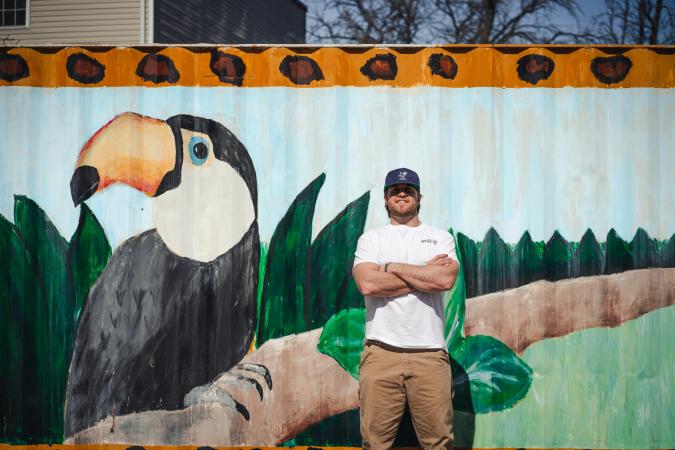Meet the Farmers
After completing a degree in biology and business at Limestone University, Apogee Farms CEO Thomas Langan moved to Colorado where he grew cannabis for a medical dispensary under Amendment 64. He later helped a plant nursery transition into a fully functioning hemp farm and contributed to outdoor production on another 250-acre farm. With some real growing experience under his belt, and dirt under his fingernails, he returned to his home in the nation’s capital.
Growing up in D.C., Thomas witnessed firsthand the adverse impacts of urban food deserts. Committed to using his skills to meet the most basic human need—access to quality food—Thomas became one of the first growers in the region to pursue the Urban Farming Land Lease Program. After years of community advocacy and legwork, Apogee Farms was awarded land to steward in the H Street Corridor of D.C., a community with a high-need for food access.
The mission of Apogee Farms is to produce low-input produce that makes a big impact on the local community. “If we can provide healthy foods,” Thomas explains, “that takes a lot of other problems away.” Apogee’s lot is immediately adjacent to dozens of local houses, providing a unique opportunity to directly engage the neighborhood. As restaurant sales provide a financial foundation for the farm, Thomas envisions Apogee expanding into affordable community produce sales and neighbor-led growing projects.
Sustainable Agriculture Practices
For urban growers, efficiency is the key to sustainability. Maximizing space and resources is critical when growing areas are limited. Hydroponic production in a controlled environment allows for year-round production with minimal inputs and environmental impact. As Thomas says, “Apogee Farms wants to make a mark on D.C. without leaving a trace.”
- Controlled Environment Agriculture requires zero pesticides.
- All Apogee Farms produce is grown without synthetic fertilizer.
- In partnership with Apogee Farms, Pluvr Compost will collect local food and yard waste. Worms (vermicomposting) will convert this waste into a high-nutrient plant amendment.
- Compost is aerated, strained, and applied to Apogee’s crops through the watering system (fertigation).
- Solar installations will offset the energy required for CEA growing.
- The farm site will serve as an education center with regular tours serving schools and educational organizations like Cultivate the City, a D.C. based B-Corporation, as a way to reinvest in the local community.

